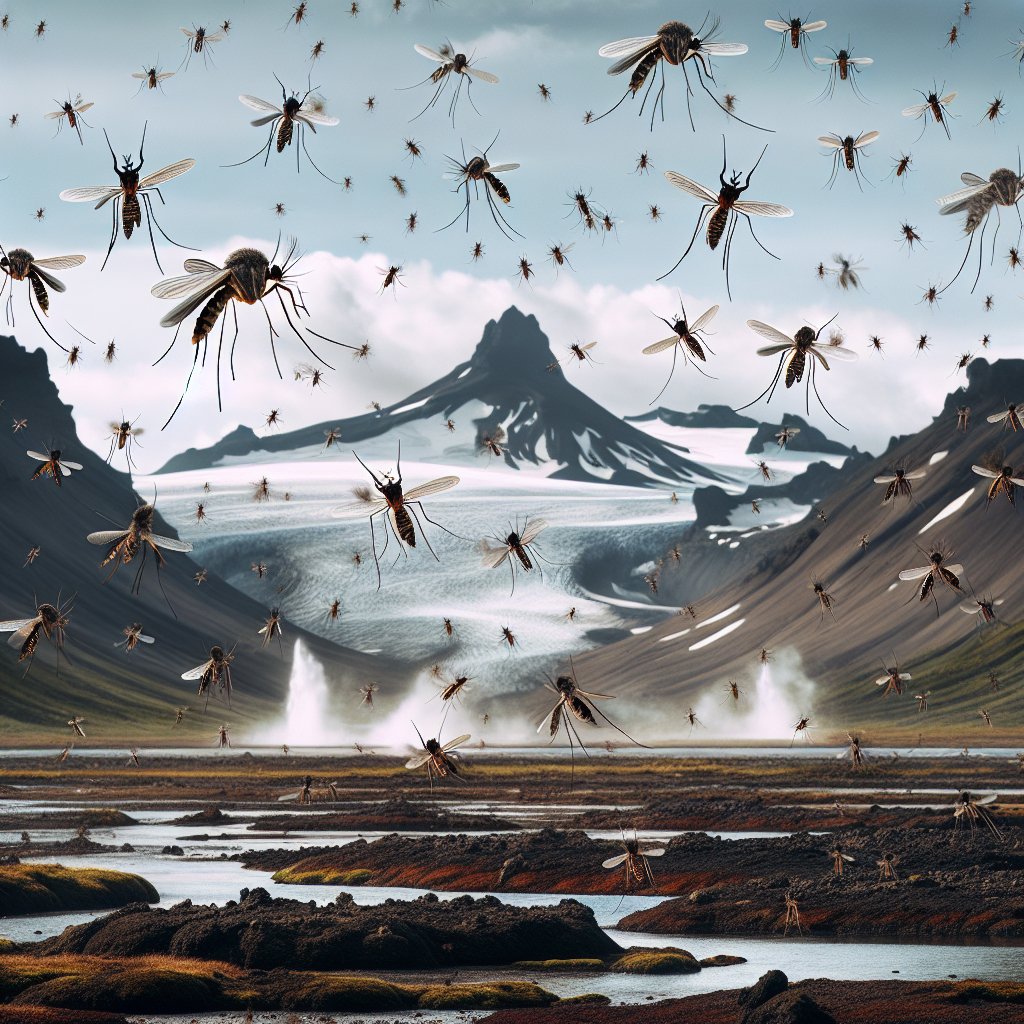The Unexpected Arrival
Iceland has long enjoyed a unique status as a mosquito-free haven, much to the envy of the rest of the world. While Antarctica shares this distinction, it’s not exactly a vacation hotspot. Iceland’s mosquito-free existence has been credited to its harsh winters and oceanic climate—conditions that have kept these pesky insects at bay. However, this blissful mosquito absence has come to an end. Recently, an insect enthusiast in Kjós, Björn Hjaltason, made the startling discovery of mosquitoes in Iceland. Posting on a Facebook group dedicated to Iceland’s insects, Hjaltason announced the arrival of mosquitoes with a mix of dread and humor.
These mosquitoes were sent to the Natural Science Institute of Iceland, where entomologist Matthías Alfreðsson confirmed the species as Culiseta annulata, native to northern Europe. Although mosquitoes have occasionally hitched a ride on planes to Iceland, this marks the first time they’ve been found on Icelandic soil. Alfreðsson noted the significance of this discovery, hinting at broader implications for the region.
Warming World, Expanding Mosquito Range
As the planet heats up, Iceland is feeling the burn more acutely than most. According to the Icelandic Meteorological Office, the country is warming at a rate nearly three times the global average. This warming trend is not just about rising temperatures; it’s also triggering increased volcanic activity and the rapid retreat of glaciers. These changes create a more welcoming environment for insects, including mosquitoes, allowing them to venture into previously inhospitable territories.
While Culiseta annulata isn’t a major disease vector, the arrival of mosquitoes in Iceland is a harbinger of potential health risks. Other mosquito species, like the Asian tiger mosquito, known for spreading dengue fever, have already been spotted in the UK. This trend underscores the broader threat posed by climate change, as warmer temperatures enable disease-carrying insects to invade new areas, putting more people at risk.
Iceland’s New Reality
Iceland has always been an outlier in the mosquito department, considering its Nordic neighbors have long dealt with these flying nuisances. With its abundance of lakes and ponds, Iceland seems like a mosquito paradise—if only they could survive the climate. Theories suggest that Iceland’s frequent freezes and thaws have historically prevented mosquitoes from establishing a foothold.
However, the newly discovered mosquitoes are likely here to stay. The Culiseta annulata species is particularly cold-resistant and may find refuge in Icelandic basements or barns during the harsh winters. Experts will be closely monitoring the situation to determine if these mosquitoes become a permanent fixture in Iceland. The recent discovery aligns with scientific predictions that as global warming progresses, mosquitoes would eventually make their way to Iceland.
A Buzzing Future
The arrival of mosquitoes in Iceland is a wake-up call, signaling the tangible impacts of climate change. Iceland’s average air temperature has risen about 2 degrees Fahrenheit over the past two decades, paving the way for approximately 200 new insect species to settle in the region. The presence of mosquitoes is a testament to the changing climate and its ability to reshape ecosystems.
As Iceland grapples with this new reality, the rest of the world should take note. The mosquitoes’ presence is not just an inconvenience; it’s a reminder of the broader environmental shifts occurring globally. If temperatures continue to rise, we might see more unexpected guests in places we never imagined. Iceland, once a mosquito-free refuge, now serves as a stark example of nature’s adaptability—and the challenges that come with it.



